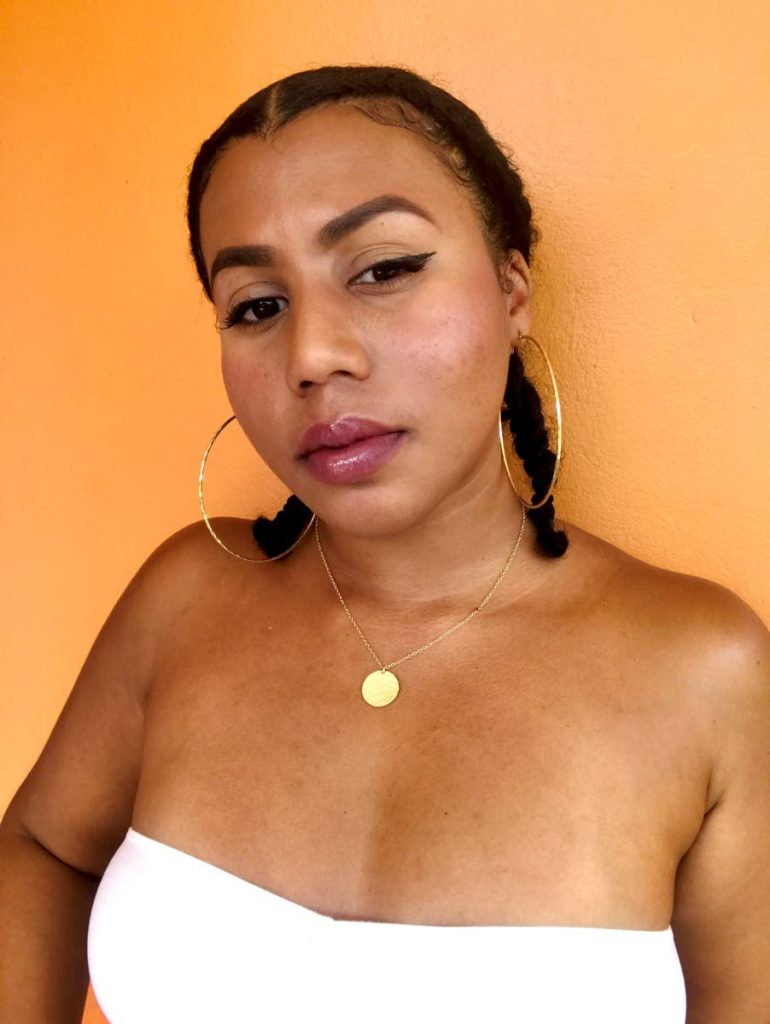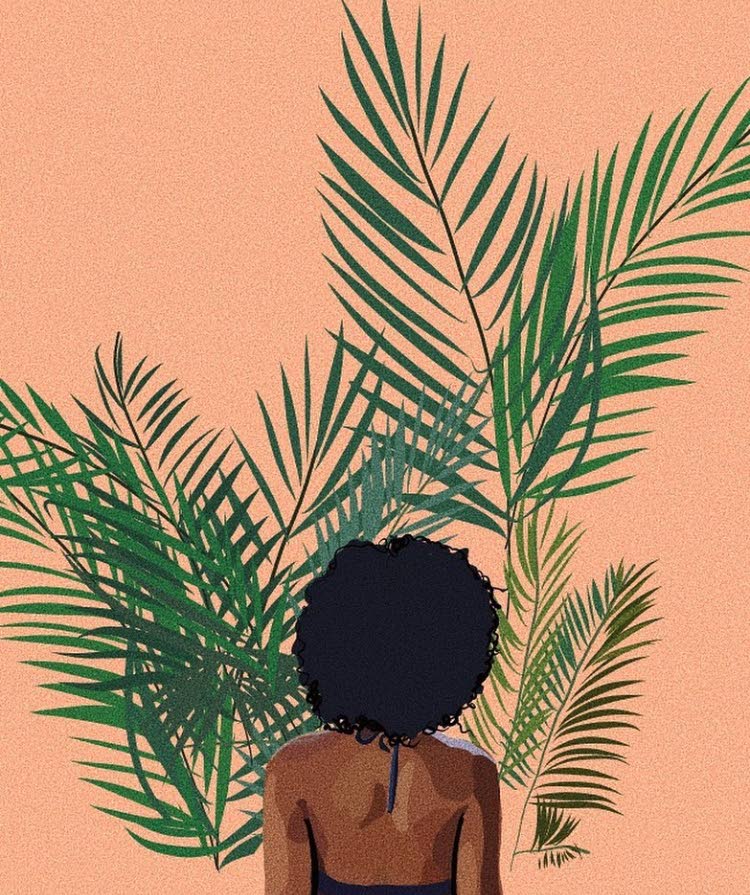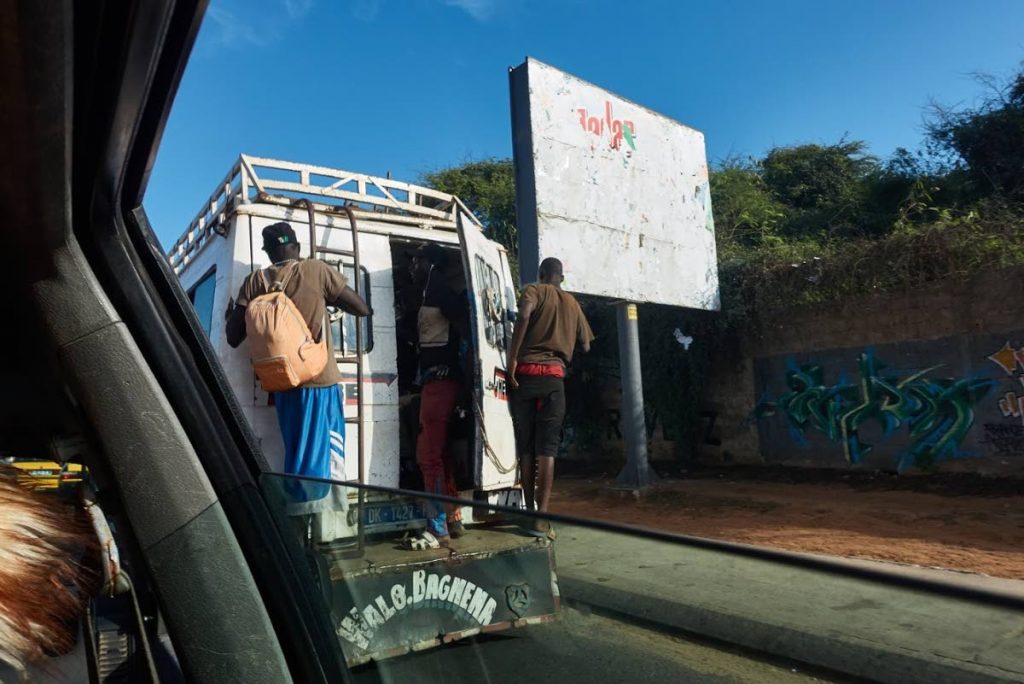Afrovive: Celebrating Afro-Caribbean culture

AFRICA Film TT (AFTT) has launched a monthly podcast, Afrovive, which highlights the ever-present and evolving relationship between TT, the region and the continent of Africa through music, art and creative expressions.
The monthly video podcast, which premièred last Thursday, is broadcast live on africafilmtt.com.
It was conceptualised and is hosted by Melanie "DJ Honeycolada" Jones-Powell, who has been with the organisation as sponsorship lead from its inception in 2014, and in October 2019 became festival co-ordinator.
"The podcast came about because I felt like it would be interesting to explore the idea of putting together a programme that would connect many spaces influenced by African culture. There is currently a wave of African-influenced energy covering the globe and we wanted to be part of it.
"Especially in this time where people are not able to do much because of covid19 restrictions," she said, the timing seemed fit for a concept that mixes entertainment and education while helping to maintain the relationship between the AFTT brand and the public.
Jones, who recently became a DJ, said she was happy for the opportunity to explore the rich cultures of Africa, linking and highlighting them with those of the diaspora.
"Initially I was not sure what it would have looked like but with time, the concept came together. I don't think there is anything quite like this being done locally."
Each show features afrobeat and afrobeats music played by Jones-Powell and a guest DJ. The line up also includes interviews with a range of creative professionals such as dancers, visual artists, photographers and fashion designers whose work is heavily influenced by African art and imagery. Featured artists include Azariel Pedro, TT-based photographer from Jamaica Marlon James and Amir Hall.
The show also seeks to generate greater awareness around the afrobeats genre, which has been gaining a wider audience recently – a prime example being Jerusalema by Master KG from South Africa. The song and its accompanying dance became popular during 2020, with over 242 million views on YouTube and millions of people around the globe posting themselves participating in the Jerusalema dance challenge on social media platforms such as Tik Tok and Instagram.

Photo source: @felakutiofficial on Instagram -
"Within every episode, there will always be things showing the connection, whether is music or visual work by local and regional artists and fashion designers.”
Jones-Powell said it is important to remember how many of these cultural expressions came to the region.
"We see many of these elements of dance, music and fashion even throughout the evolution of TT Carnival."
She also mentioned the increasing body of work that is a hybrid of creative work from Africa merging with work from the Caribbean and the diaspora.
"A great example of this collaboration is Adekunle Gold from Nigeria and TT's Nailah Blackman for the song AG Baby." The video, which premièred on YouTube in August, has received over 250,000 views and was featured as a top pick in the first episode of Afrovive.
Jones-Powell said viewers can look forward to conversations not only with people from TT and the region but also from the Caribbean and African diaspora – especially people who have a direct connection to the continent, whether a family or ideological link.
"Modupe Onilu was our first interviewee. The conversation with him is currently available on the AFTT website.

Photo courtesy Azariel Pedro -
Onilu is a local musician who forms part of the Caribbean percussion party band BoomBoomRoomTT, that plays live drums and other percussion instruments at Carnival fetes. He also designs jewellery.
“His late father, Jah Jah Onilu, was a multi-instrumentalist from a group of people who made their instruments from bamboo. Listening to the music they would create from these instruments they made with their hands sounds and feels Yoruban – following the Orisha tradition."
Future conversations will include directors, actors and other people involved in the production of films featured by the festival in the past.
Jones-Powell said working on the programme has been fulfilling, though demanding.
"It is a lot, but the team is motivated by purpose. It feels great to contribute to the body of work on the digital landscape that promotes a connection to the motherland for the descendants of Africans."
The podcast also includes what has been named the Boom Flick segment, which Jones-Powell calls a digital art experience.
In Boom Flick, the work of local and regional visual artists, photographers, filmmakers, illustrators and fine art is displayed during a DJ set.
"Upcoming features include Shari Petti and Olajuwon Scott, among others."
The hope is that the podcast will contribute to an understanding of present-day Africa, the world’s second-largest continent. She said much like TT and the Caribbean, Africa is a diverse melting-pot and each region adding a unique flair, flavour and energy to the blend.

Photo courtesy: Marlon James/ Afrovive - Marlon James
"It is great to help write an updated story about the connection. Seeing it and contributing to this blended version of an unfolding story between the spaces is fulfilling.
"One thing I had to think about,” she added, “was how I was going to deliver the content. I realised people do not generally gravitate toward long-form content as much as in the past."
So she did a survey to help her understand how most people would prefer to consume the content, then crafted a line-up of bite-sized content – much of which is shared in synch, such as artwork being displayed during the DJ set in the Boom Flick segment.
Jones-Powell said she looks forward to sharing parts of African culture not commonly seen in local media, not only acknowledging the history of the people and the diaspora but also highlighting what is currently happening across the continent and how its scattered people are reuniting through the arts.
The next episode of the podcast, titled Bringing Down The House: Afrohouse, is slated for December 10 on africafilmtt.com.
To stay updated on all things Afrovive follow on Instagram @afrovive.

Comments
"Afrovive: Celebrating Afro-Caribbean culture"